
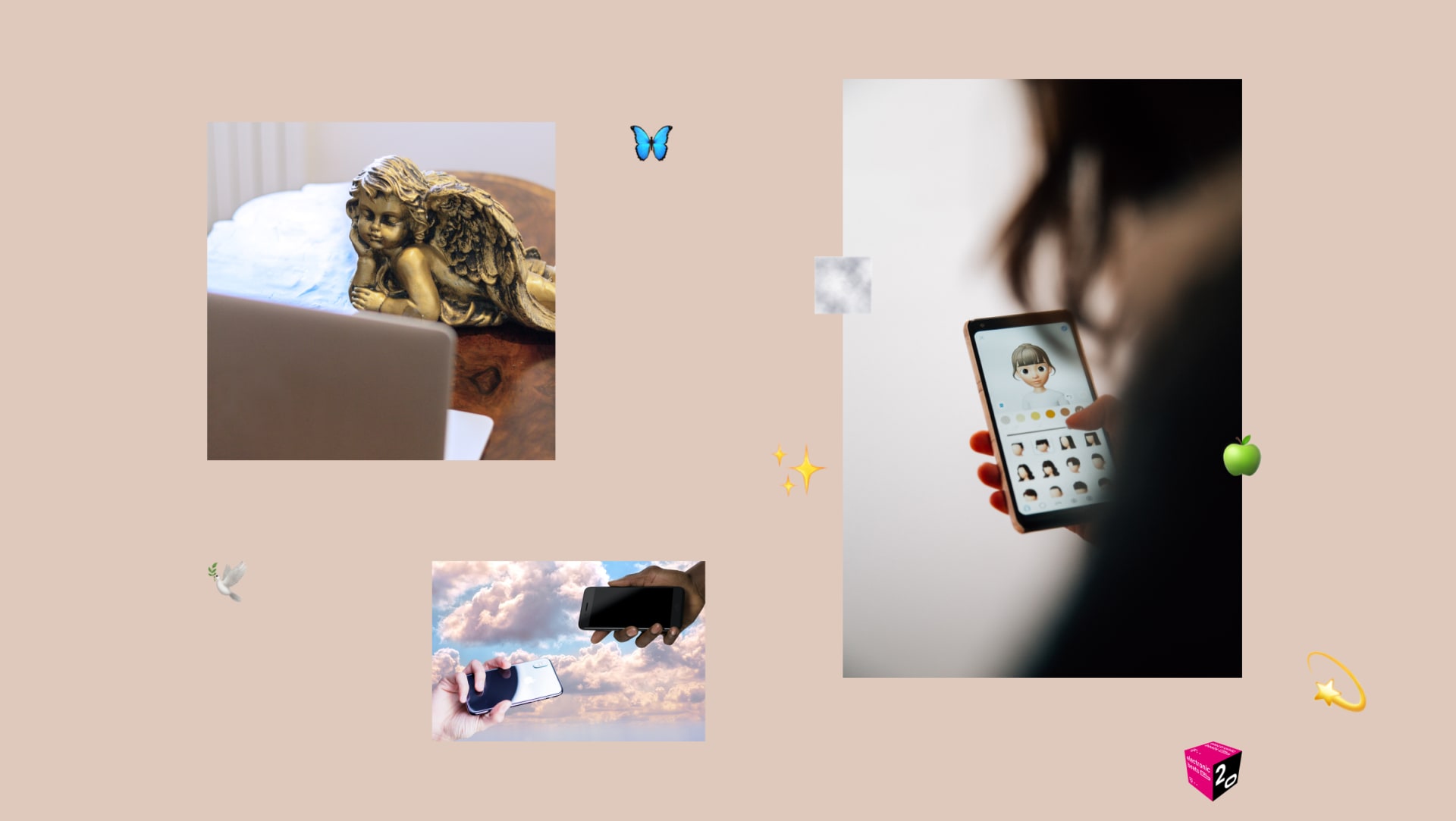
Music in the Age of Interconnected Production
Is the internet really the right place for sustainable creative exchange between artists and fans? A.G. Cook weighs in.
If Web 2.0 democratized the musical means of production, the rise of social media represents the second radical break in the way music is distributed and consumed. In her essay from the forthcoming Electronic Beats book, Laura Aha ponders the role of social networks in enabling creative exchange between fans and artists and the ethical implications of a globalized, interconnected music scene.
Charli XCX looks sleepy. “I just finished an all-nighter session. It’s half-past six in the morning right now.” She’s speaking to her fans through the shaky front lens of her phone in a behind-the-scenes announcement video to promote her latest album, how i’m feeling now. “Had some vodka,” she hiccups, before pulling down the shutters in her bedroom and going to bed in the next shot. It’s mid-May 2020. For almost two months, the music scene has come to a standstill in lockdown. Those who can afford it do yoga in their country house, those who can’t are streaming unpaid gigs from their living room and are probably considering a career change.
With five successful major-label albums and 3.7 million Instagram followers, Charli XCX doesn’t exactly belong to the second group. Still, laying low is not an option for her. “I have to be creative to be happy,” she told the “Angels,” as she lovingly calls her fans, in a public Zoom chat in early April. In the same videoconference, she announced her intention to produce a new album in six weeks, exclusively utilizing the tools available to her in quarantine.
Despite the isolation that she spent with her boyfriend and two friends in Los Angeles, the album was to be Charli XCX’s most collaborative project ever, produced with other artists and her fans. “I want to disclose the entire process,” she promised. “I’ll show you demos, acapellas, ask you for your opinion on lyrics, which songs I should release, and which artwork. You will help me make videos and get creative with me.”
As with her previous projects, Charli XCX worked on how I’m feeling now with her longtime collaborator, British producer A. G. Cook. During the entire time, the label boss at PC Music sat in his girlfriend’s parents’ house in Montana, 1,500 kilometers away—and struggled with the wifi connection. “I always had to go to the top floor to download all the files,” says Cook with a laugh in the Zoom interview from that very house in Montana. “I worked on the music in blocks, talked to Charli on FaceTime, or texted her video snippets.” All of this could be followed live on Charli’s socials—she used her phone to record snippets of the Adlibs 100 gecs’ Dylan Brady sent her as voice messages via Instagram DM. Fans could witness her scribbling lyrics in a notebook, improvising melodies, and swearing into the cell phone camera when she recorded her vocal parts in the living room. A. G. Cook encouraged her to record her own vocals (which she’d never done before) and explained how to use the software via video chat.
The possibility of artistic collaboration free from the restrictions of physical spaces is not a new phenomenon. Due to COVID-19, however, it suddenly became a creative imperative and, as in the case of Charli XCXs, brought about new forms of collaboration. This kind of working process signals the end of a long process of democratizing the means of production—the technological change from analog to digital studio technology paved the way for ever-cheaper music production. The arrival of the PC in almost every household and the subsequent increasing availability of inexpensive production software presented anyone with the opportunity to become a bedroom producer.
It is this phenomenon that inspired the name of A. G. Cook’s label PC Music. “I grew up with Garage Band, younger people today with Ableton. The computer has become so much part of our daily life that everyone on it becomes a co-creator.” For Cook, fans’ involvement in the creative process, as Charli XCX put it on how I’m feeling now, is “just the next logical step. She organized songwriting sessions with her fans on Instagram Live, held public votes on artwork options, and put together her video for the single “Forever” from 5,000 home-made home recording clips made by her fans.”
This element will show content from various video platforms.
If you load this Content, you accept cookies from external Media.
This new approach to artist-fan collaboration quickly seeped into the musical mainstream too—Ariana Grande and Justin Bieber’s “Stuck With You” music video won the 2020 VMAs in an entirely new category titled “Best Video From Home.” In the video, we see Ariana Grande cuddling with her dog in her bed, while Justin Bieber films himself with his wife while going for a walk, as well as hundreds of fans who had submitted their own home videos of themselves with their loved ones. The age of passive fans adoring their unreachable idol from afar is long gone. Today’s fan-active communities such “Charli’s Angels,” Lady Gaga’s “Little Monsters,” Grande’s “Arianators,” or Justin’s “Popular” feel more closely connected to their stars than ever before.
To what extent this actually applies to Charli XCX’s album production and if it was just a clever marketing strategy of the major-label behind how i’m feeling now remains to be seen. However, hardly anything has changed the relationship between fans and stars as lastingly as the development of social networks—fans catapult songs into the charts via TikTok challenges with self-made dance videos or become direct sponsors of their stars on Patreon. It is difficult to foresee whether this development frees artists from the music-industrial constraints and promotes creative exchange, or whether it only puts them in a different dependency relationship to become an optimized product for their fans. One thing is certain—today’s fans have more power than ever before because they are better networked with one another.
Today's fans have more power than ever before because they are better networked with one another.
When MySpace launched in 2003, the platform heralded a new age. For the first time, fans could network with like-minded people online, exchange ideas in groups, and discover new artists with just one click. Conversely, the ability to find target groups made the network attractive for musicians. So-called “MySpace bands” like Bullet For My Valentine, Arctic Monkeys, or Panic! At The Disco, musicians like Lily Allen and Kate Nash rose to fame through the platform. But MySpace and subsequently YouTube (2005) or Soundcloud (2007) not only ensured that existing bands could upload their music and market it themselves without a label, but the platforms also enabled creative exchange and networking across national borders. In their video “Internet Killed the Video Star,” which they uploaded to YouTube in 2006, the ClipBandits claimed to be the world’s first “web band” that had formed on YouTube without ever meeting in person or knowing the names of their bandmates. They wrote music “together” by playing their respective instruments and synchronizing YouTube videos with one another.
In addition to the formation of new collaborations or genres of their own—like the emergence of “Cloud rap” in the early 2010s—platforms such as Soundcloud also helped establish niche phenomena by allowing like-minded people to connect online. Without Soundcloud, A. G. Cook assumes that he probably would have never founded his label PC Music.
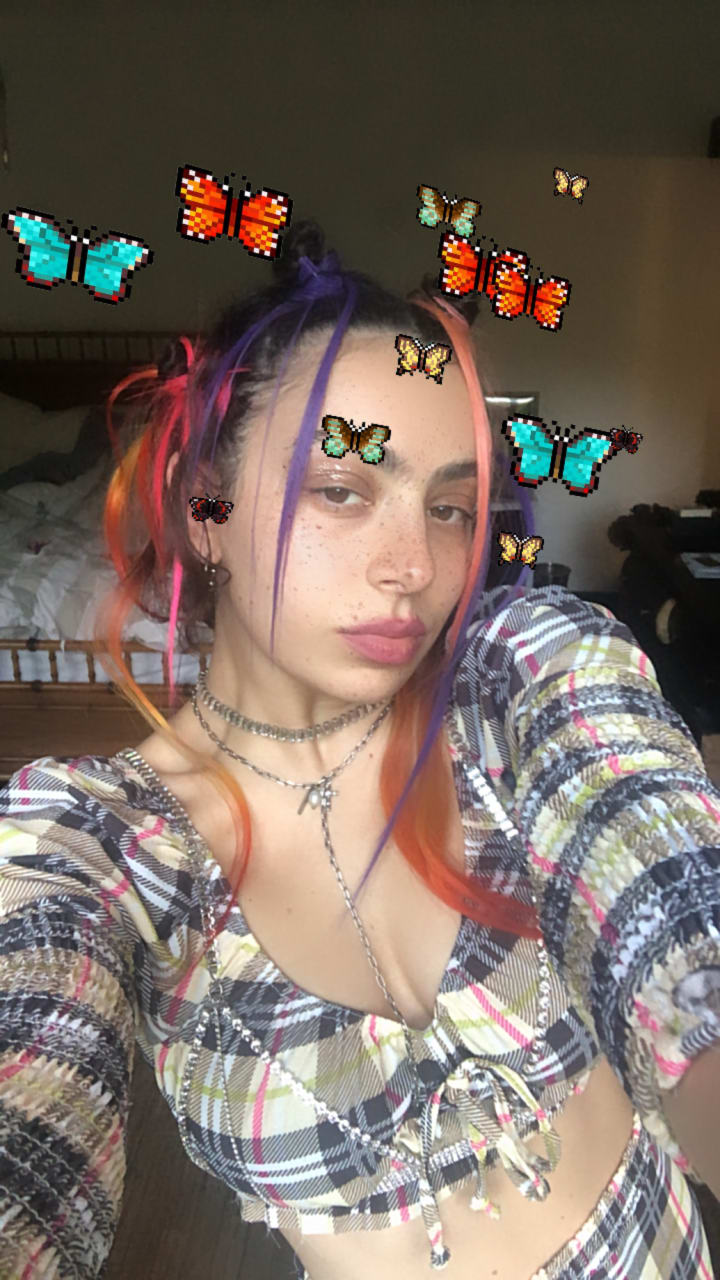
Whether international ravers will return to flying into cities across Europe just for a party weekend remains to be seen—and from an environmental point of view, it’s no longer acceptable. Does this mean online collaborations like Charli XCX’s approach and live stream concerts in virtual rooms are the only meaningful future? Even if more and more is possible online, A. G. Cook is confident that musical collaboration will not work without contact IRL.
“I think the project with Charli’s album would not have been possible if we hadn’t worked so much together beforehand. It’s almost proof of how much we’ve worked together and how well we get on. There was a lot of dialogue on the tracks between my production and her vocals,” he says. In the digital production process, the lack of artistic dialogue and creative debate presented one of the most significant challenges. There was simply no physical space to play with ideas, exchange thoughts and discard them again.
“If you write to someone in the chat, ‘I don’t like this idea at all,’ it often sounds a lot harsher than it intended. When you’re in the same room, you can tweak the sound a little and develop a new idea. There is a kind of direct, human feedback that simply feels more fluid than just discussing in the chat.” According to Cook, it’s impossible to use live conferencing platforms like Zoom for jam sessions, because there are too many technological hurdles to work efficiently in a creative way. “You can only hear one desktop at a time,” for example.
I think Charli XCX's album would not have been possible if we hadn't worked so much together beforehand.
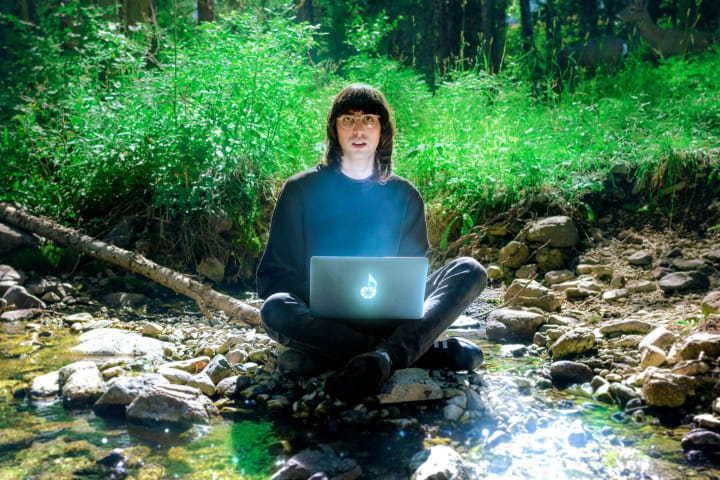
A. G. Cook used Discord to promote his album Apple by opening a Discord server called Apple Guild, where he organized a “Battle of the Bands.” Several hundreds of people registered and were given the task of covering a classic rock song. “We gave them parody names like ACPC, a private chat room as a practice room, and thus created 60 bands. We could see how complete strangers were sending and forth, creating logos and videos. It was really great to see what a kind of, let’s say, ‘fan content,’ came out of it!” The winning band, determined through internal voting solely among those involved, won a slot at the “Appleville” festival, which took place shortly afterward, sharing the bill with to Charli XCX, 100 gecs, and Cook himself.
If the line between fans and artists is becoming increasingly blurred, what does it mean to be an artist in 2020? For A. G. Cook, this question does not seem too relevant. PC Music has always questioned traditional constructs and hierarchies from the start—including the concept of authorship. “The approach that several people work on a project is essential for me. In terms of authorship, there isn’t a singular ‘great creator’ but many people who play around with it.”
This element will show content from various video platforms.
If you load this Content, you accept cookies from external Media.
We feel compelled to document our real life. Maybe something in between would be good, a bit of role-playing.
Laura Aha is a journalist and radio host based in Berlin.
Translated from German to English by Caroline Whiteley.
The Electronic Beats book is out on March 15th. You can pre-order a copy via Do you read me ?!
Published February 01, 2021. Words by Laura Aha.


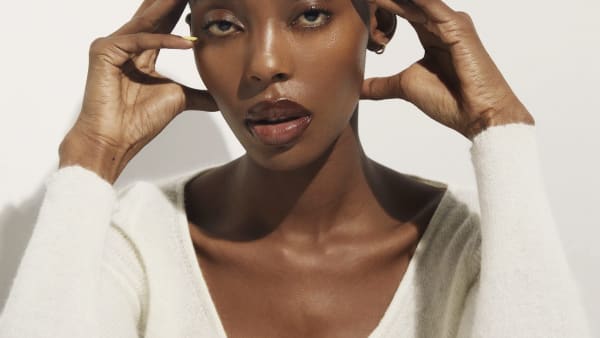


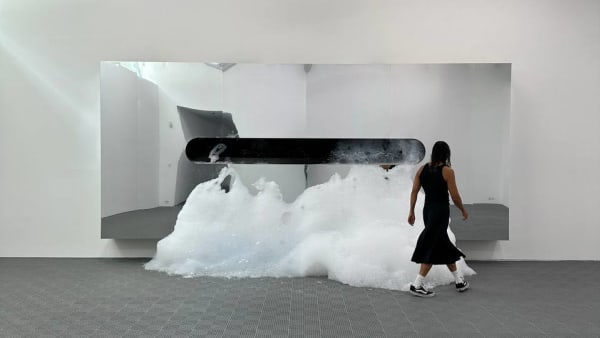

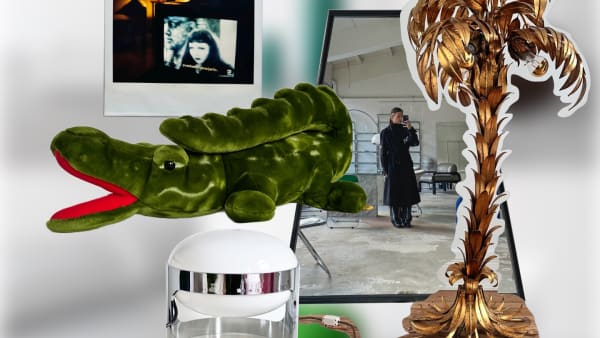


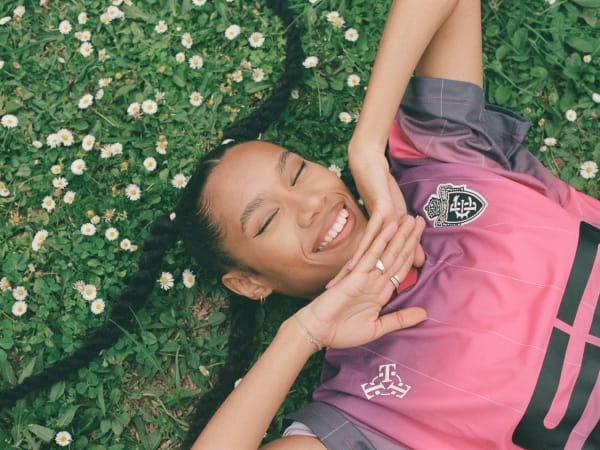

Follow @electronicbeats